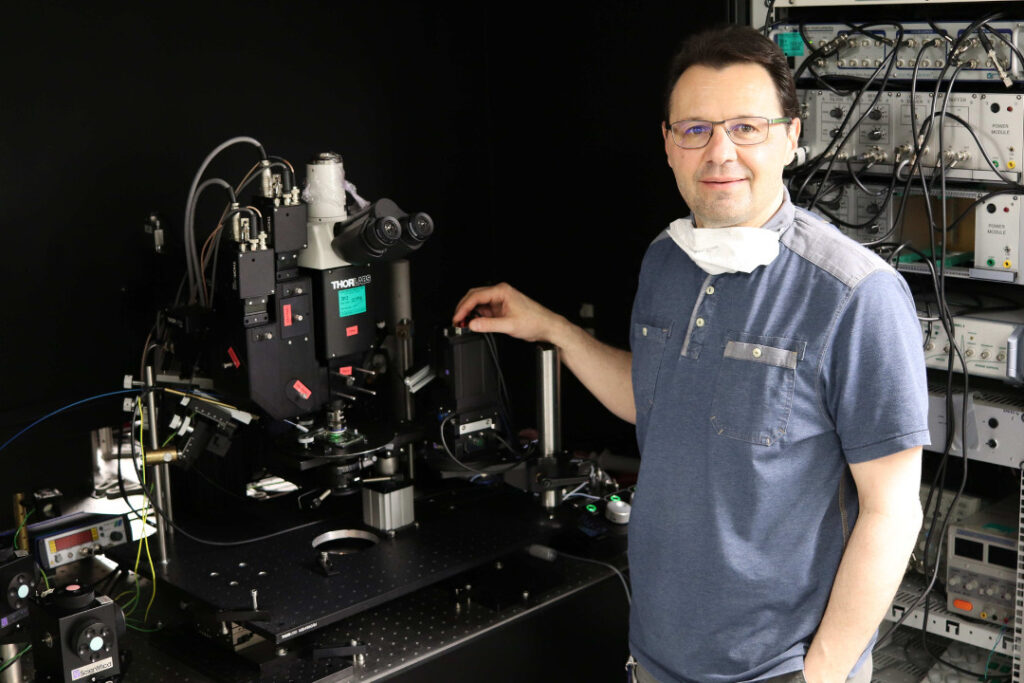University of Sheffield

Walter Marcotti is a Professor of Sensory Neuroscience in the School of Biosciences and co-Director of the Neuroscience Institute at the University of Sheffield.
He is interested in understanding how the auditory system develops and processes sound, and the processes involved in genetic forms of deafness.
More about Walter’s work
One aspect of his work is focused on identifying the processes involved in age-related hearing loss, which is the most common form of sensory loss in people. He aims to identify genes responsible for hearing loss and to develop gene-based therapies to prevent or treat this very common condition. His group is also developing pre-clinical trials (the stage of research that new treatments must go through before they can be tested in people) for the prevention or treatment of different forms of hearing loss.
Understanding how changes in inner ear supporting cells are involved in age-related hearing loss
Read about Walter’s research projectWalter’s approaches to hearing research
The ongoing development of gene-based therapies to treat hearing loss towards testing in people.
The UK needs to increase the critical mass of young scientists in hearing research, which requires more funding being dedicated to hearing research. One way is to support fewer but longer-term (5 year) fellowships, which will also make it easier for early-career researchers to obtain an academic position at the end of their fellowship.
Hearing allows us to communicate with our loved ones and also to indulge in activities such as listening to beautiful music. Hearing loss can therefore isolate people from their surroundings, which can be a devastating feeling. I want to make a difference to people’s lives in this respect, which is the reason why I dedicate my life to providing key knowledge and tools that are required for developing treatments for hearing loss.
We aim to make a substantial impact on the understanding of how the auditory system functions and the processes that lead to age-related hearing loss. We hope to use this knowledge to develop therapeutic interventions for hearing loss in people.
Hearing loss affects about 5% of the world’s population, and we still do not have an effective way of treating or even preventing the loss of this important sense. RNID is currently playing a major role in moving the field forward.
They provide critical funding that allows for the training of the next generation of scientists in the field, as well as allowing us to make substantial progress in the identification of mechanisms and genes involved in hearing and deafness.